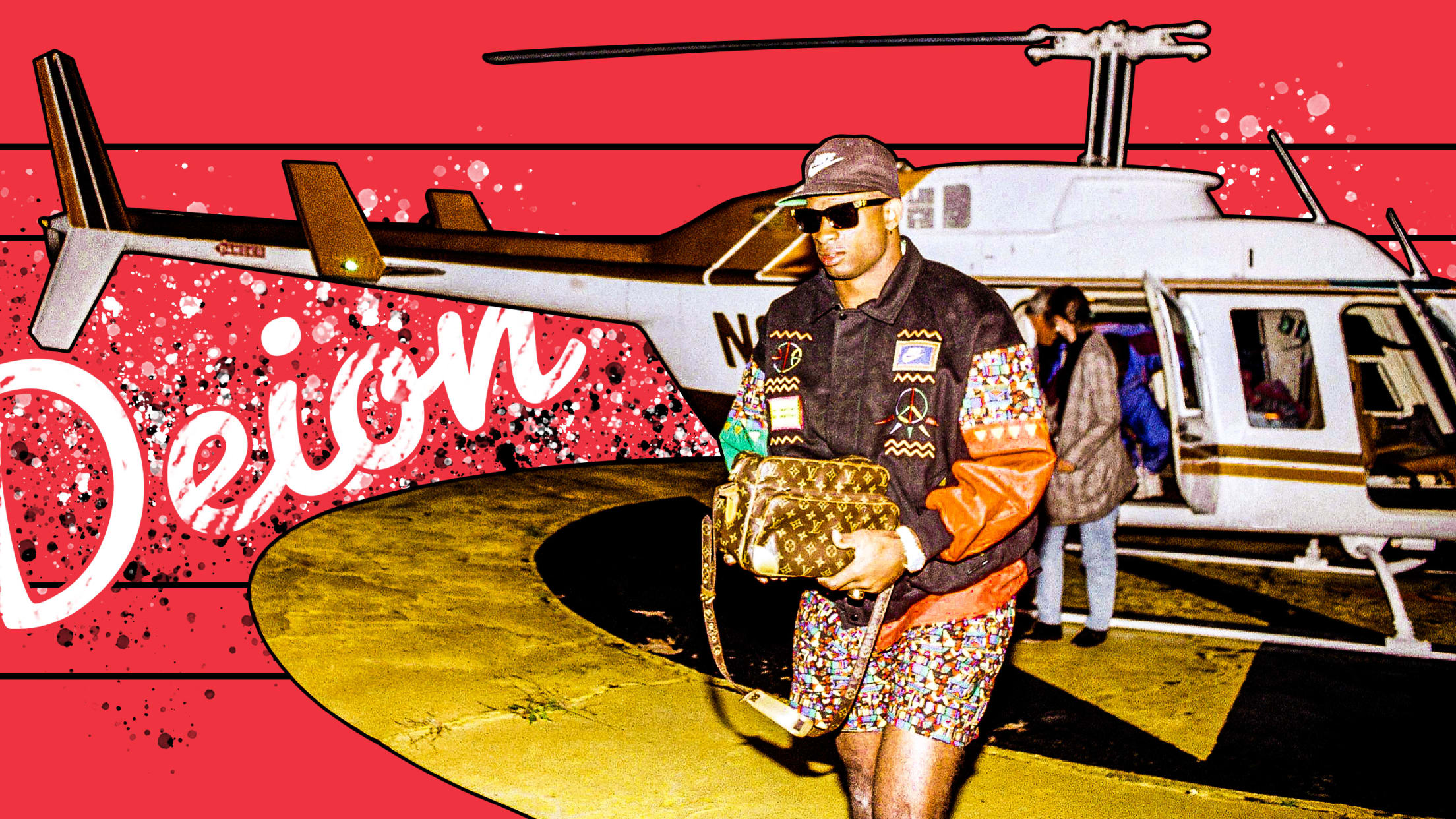
The day Deion tried to play two ... sports
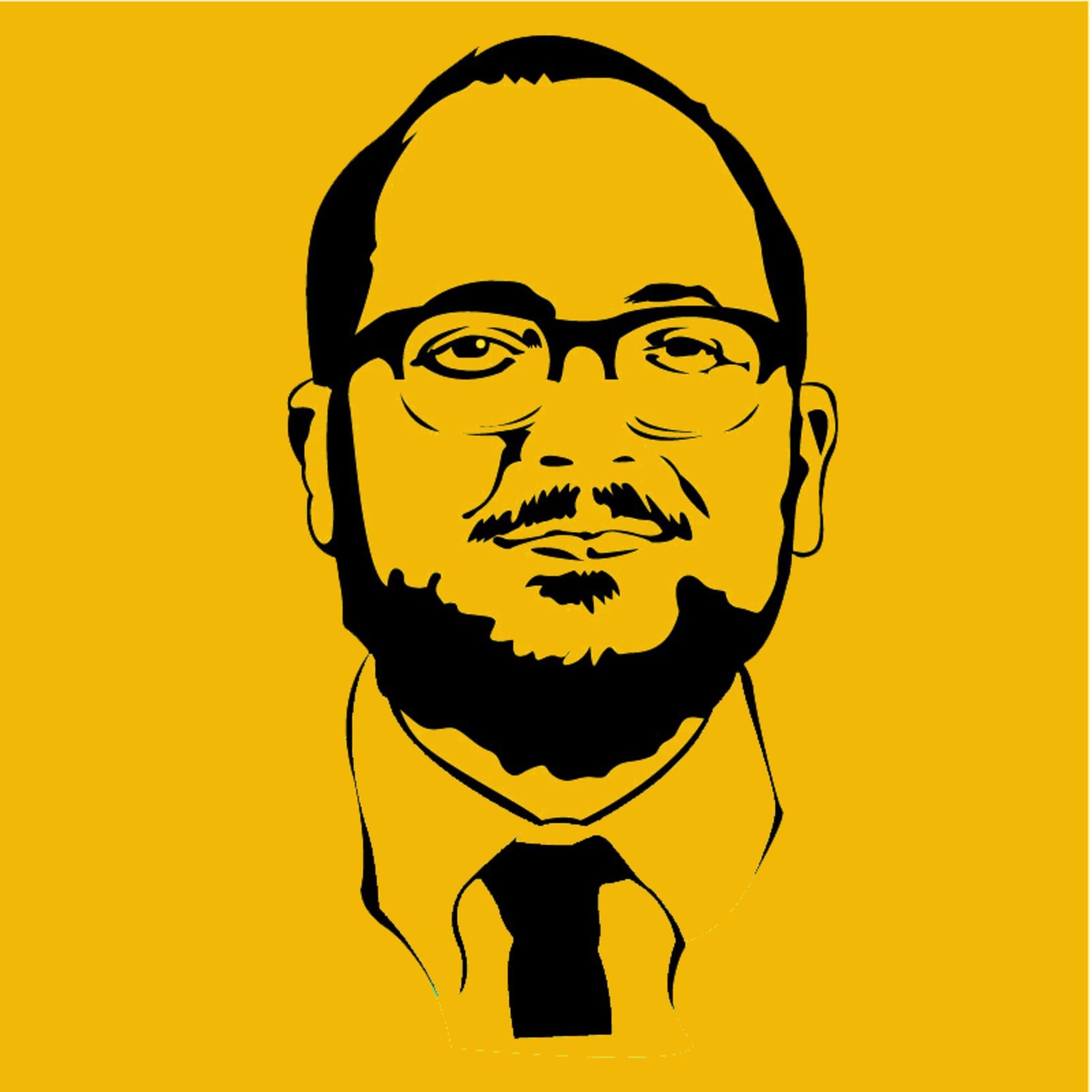
Time was running out. Deion Sanders' hopes of playing two professional sports in a single day were dwindling. The group was already behind schedule leaving the Falcons game because Sanders needed an IV to replenish his fluids. And now, the helicopter pilot who would ferry them from Joe Robbie Stadium to Opa Locka Airport in Miami to catch the plane back to Pittsburgh for NLCS Game 5 would not take off. Sanders and his entourage -- which had swelled during the trip to include himself, his girlfriend Carolyn Chambers, his daughter, his agents Eugene Parker and Roosevelt Barnes, Pat O'Brien's CBS camera crew and his Nike representative, Anne Scearce, were too large to ride in the helicopter.
[A version of this story was originally published in October 2021.]
"I can't take all this weight," the pilot said. It was unsafe to fly and someone would have to be left behind. The group looked to Scearce.
"No, she has to get on," Sanders said, "or we're not leaving."
There was a tense standoff. Precious seconds they couldn't afford ticked by. Finally, the pilot agreed to take two trips -- bringing Sanders first and then coming back for a second group. But they were cutting it close.
"This is the sort of thing kids dream about," Sanders said about his attempt at history. "In the morning, they're Michael Jordan on the basketball court, and in the afternoon, they're Deion Sanders on the football field. I'm a kid, still."
-----
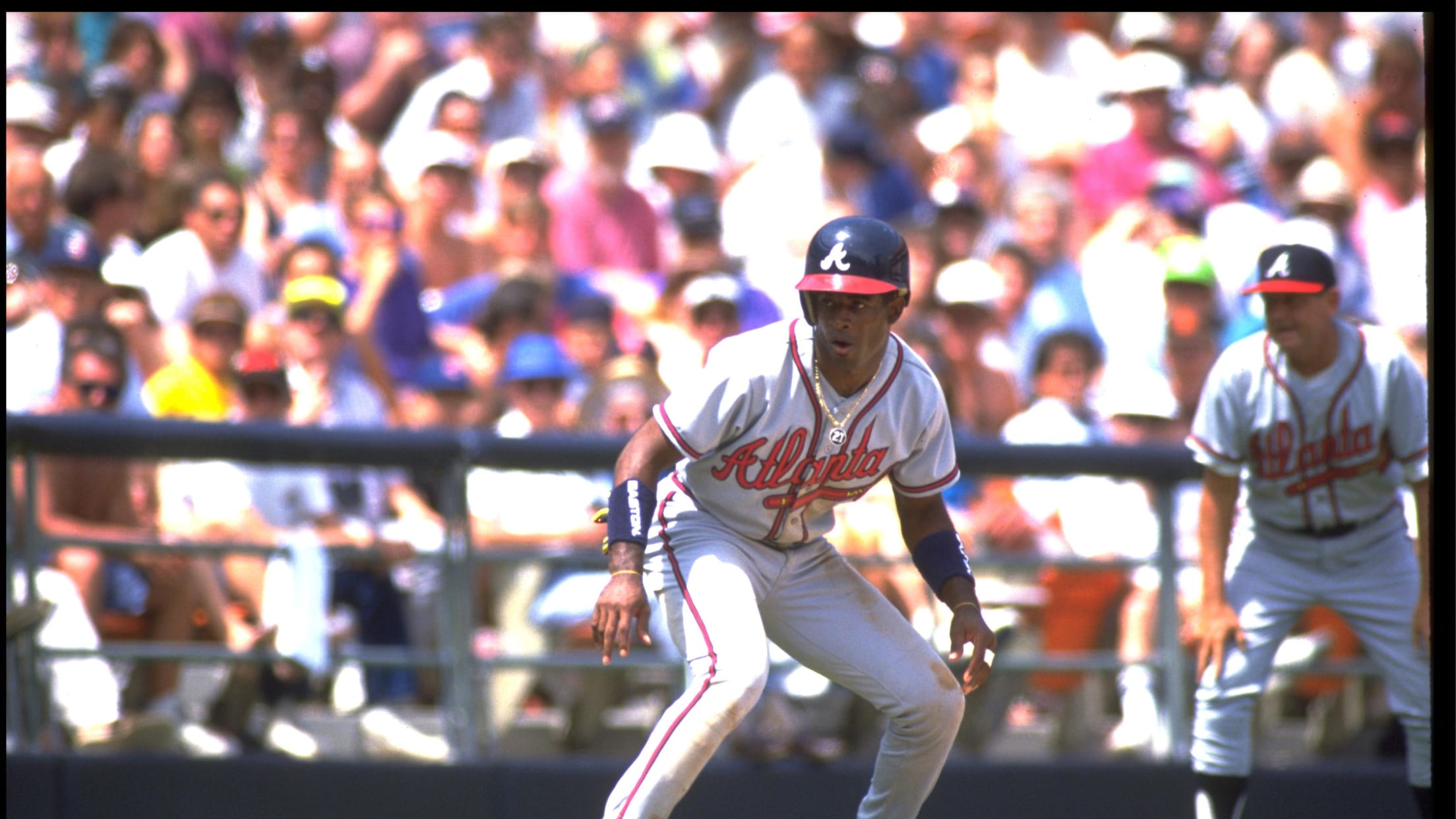
Sanders' plan to play two sports in a single day didn't occur until late in 1992. His original contract with the Braves ended on July 31, and after that, his contract with the NFL's Falcons began. His original plan was to leave baseball for the rest of the season and head to the gridiron for the fall.
It's what he had done the year before. He left Atlanta after hitting a three-run home run to help the Braves defeat the Pirates on July 31 and suited up in pads the next day. He returned to the Braves for a week at the end of September, but his football contract didn't allow him to play in the postseason and so he missed out on the Braves' World Series run in '91. He didn't want that to happen again.
So, when it came time to start playing football again, Sanders and Braves GM John Schuerholz agreed to a handshake deal: Sanders would practice with the Falcons in the morning and play for them on Sundays, suiting up for the Braves' home games along the way. This led to some confusion: If the Braves were in the postseason and their schedule conflicted with the Falcons, which team did Sanders play for?
That set all the controversy in motion for Oct. 11, 1992, when Sanders attempted to play for both teams in a single day. That afternoon, the Falcons played the Dolphins in Miami at 1 p.m. The Braves would be in Pittsburgh to play the Pirates in Game 5 of the NLCS that night. Could he really do it all? Could someone as athletically gifted as Sanders play a full pro football game and a postseason baseball game? And was there even enough time to do it?
Deion wanted to try -- and he had some help along the way. Nike agreed to foot the bill for all the travel.
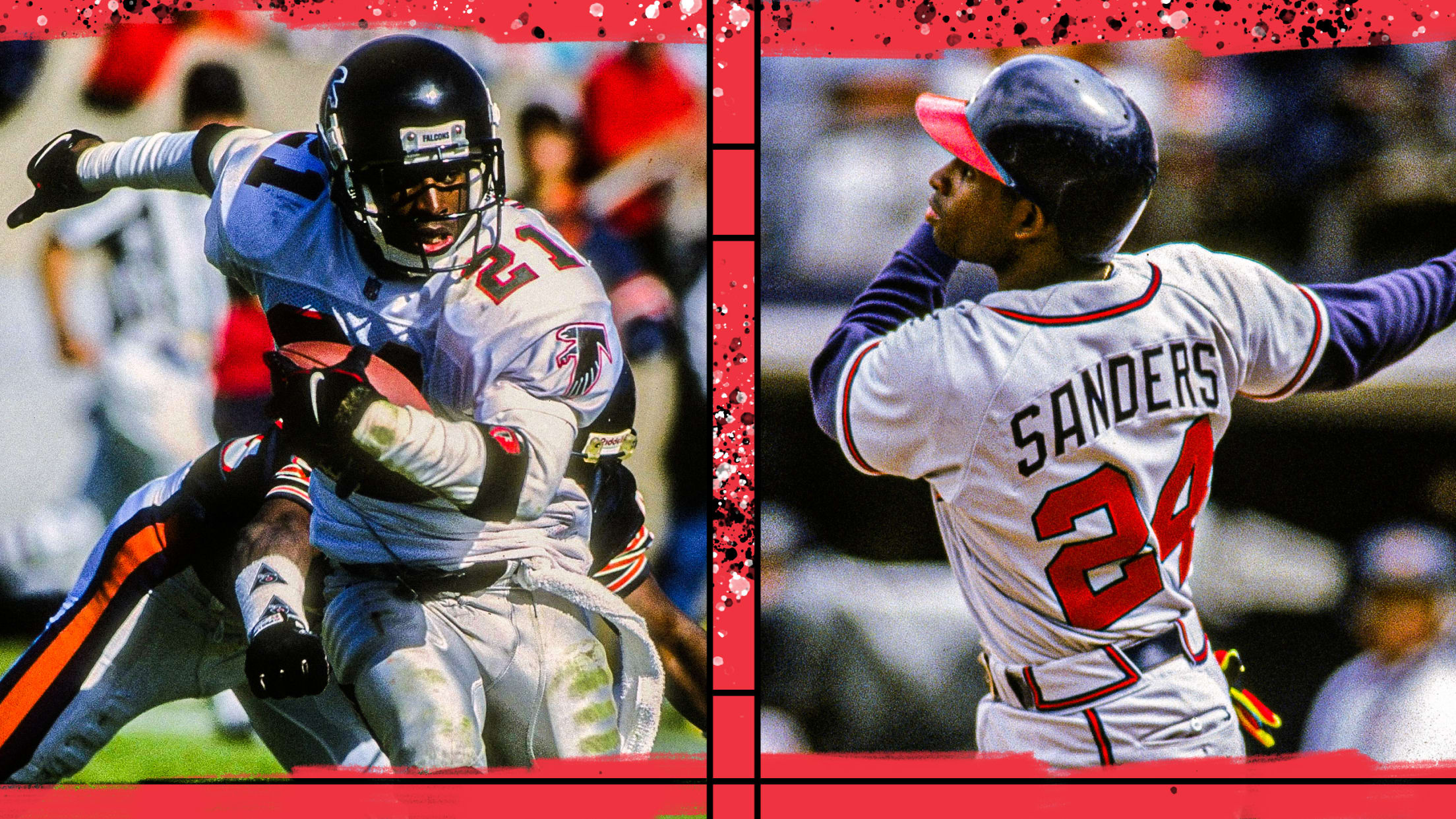
"Honestly, the whole double play, triple way weekend -- whatever you want to call it -- had nothing to do with Nike, other than he called me because he needed football cleats," Scearce said in a recent phone call.
Now a professional photographer, Scearce was then a Nike athlete marketing manager, working with their icon-level athletes. This was a small collection of six or seven world-class athletes on the level of a Michael Jordan type like Sanders, who required a point person to help manage their schedules and various needs from the company.
It made a lot of sense in Sanders' case.
"It was really helpful to have him in that group because he had a lot of needs," Scearce said. "It could be we're designing a shoe for him or he needs batting gloves or we're doing some marketing with him. There's just so many different people at Nike -- the football manager versus baseball-cleated footwear guy. So many different people at Nike worked with him that it was nice to have a point person for Deion. So, I ended up working with all the different departments at Nike to coordinate everything for Deion."
That meant it was on Scearce's shoulders to coordinate all the travel -- the flights, the helicopters, the limos -- that would take him everywhere. If it all came apart, it would be on her shoulders.
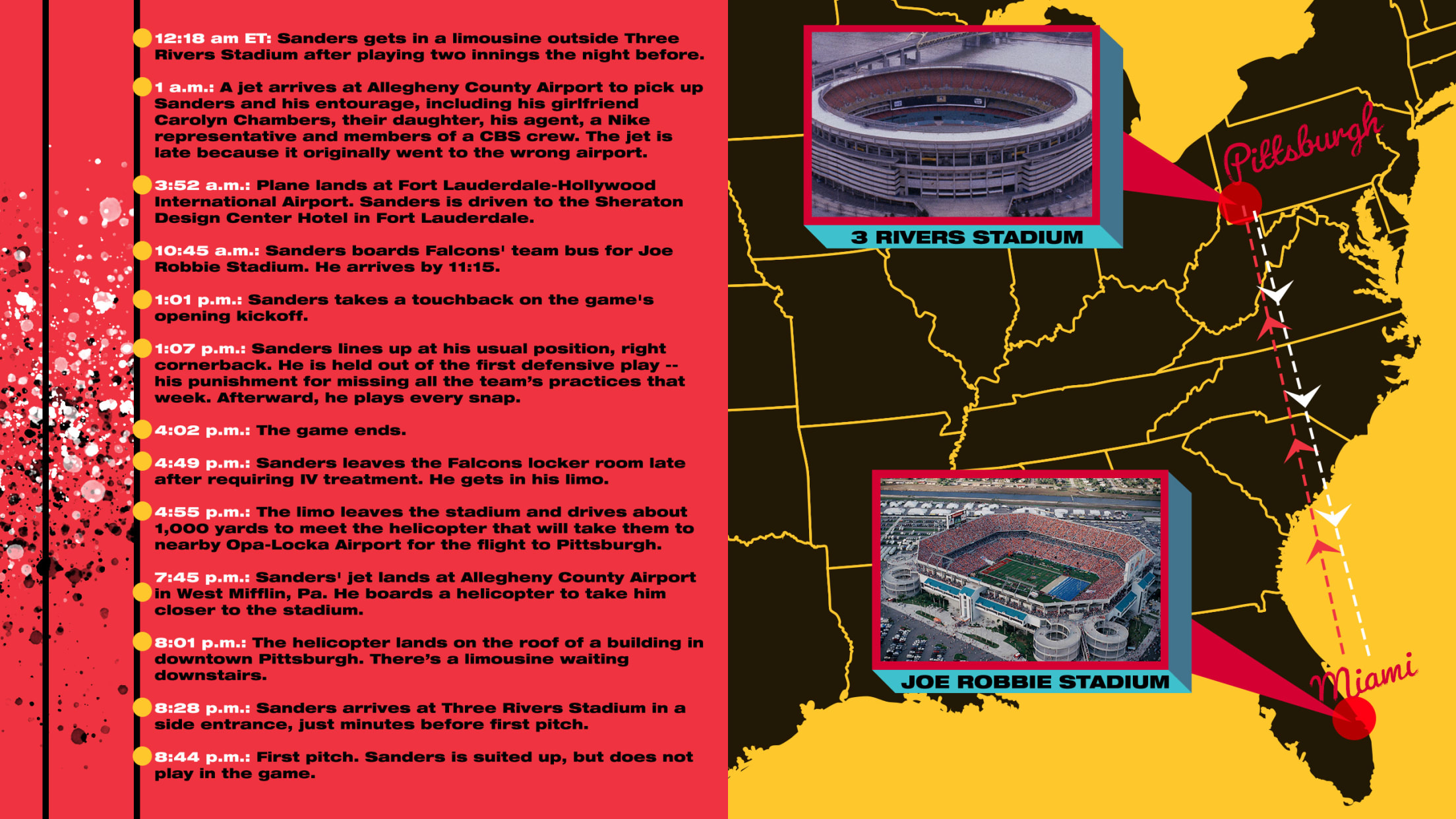
Sanders had to deal with plenty of animosity along the way, too. There were public contract negotiations throughout the summer as both the Braves and Falcons made overtures for his services. At one point, there was a chance that Sanders would stay with the Braves through the postseason -- only switching to football in the second half of the season. Eventually, a compromise was made that, as his agent Parker said, "allows him to accomplish another of his dreams, and that is to participate in both baseball and football as much as he can at the same time."
But the media had painted Sanders as greedy -- and they liked his two sports in one day plan even less. Headlines calling him out for his "Frequent Liar Miles," were the norm.
He had also angered his employers with the Braves. They believed that their agreement meant that Sanders would forego playing with the Falcons should the Braves reach the postseason. Sanders thought he agreed to be at every Braves postseason game, but that he would still fulfill his NFL obligations.
Schuerholz, the then-Braves GM, didn't hide his displeasure. "I thought we had an understanding that this would not happen," said Schuerholz.
His manager, Bobby Cox, was a little more political, but didn't seem thrilled, either.
"You have to put yourself in his shoes," Cox said. "You can't blame him for doing this, I guess."
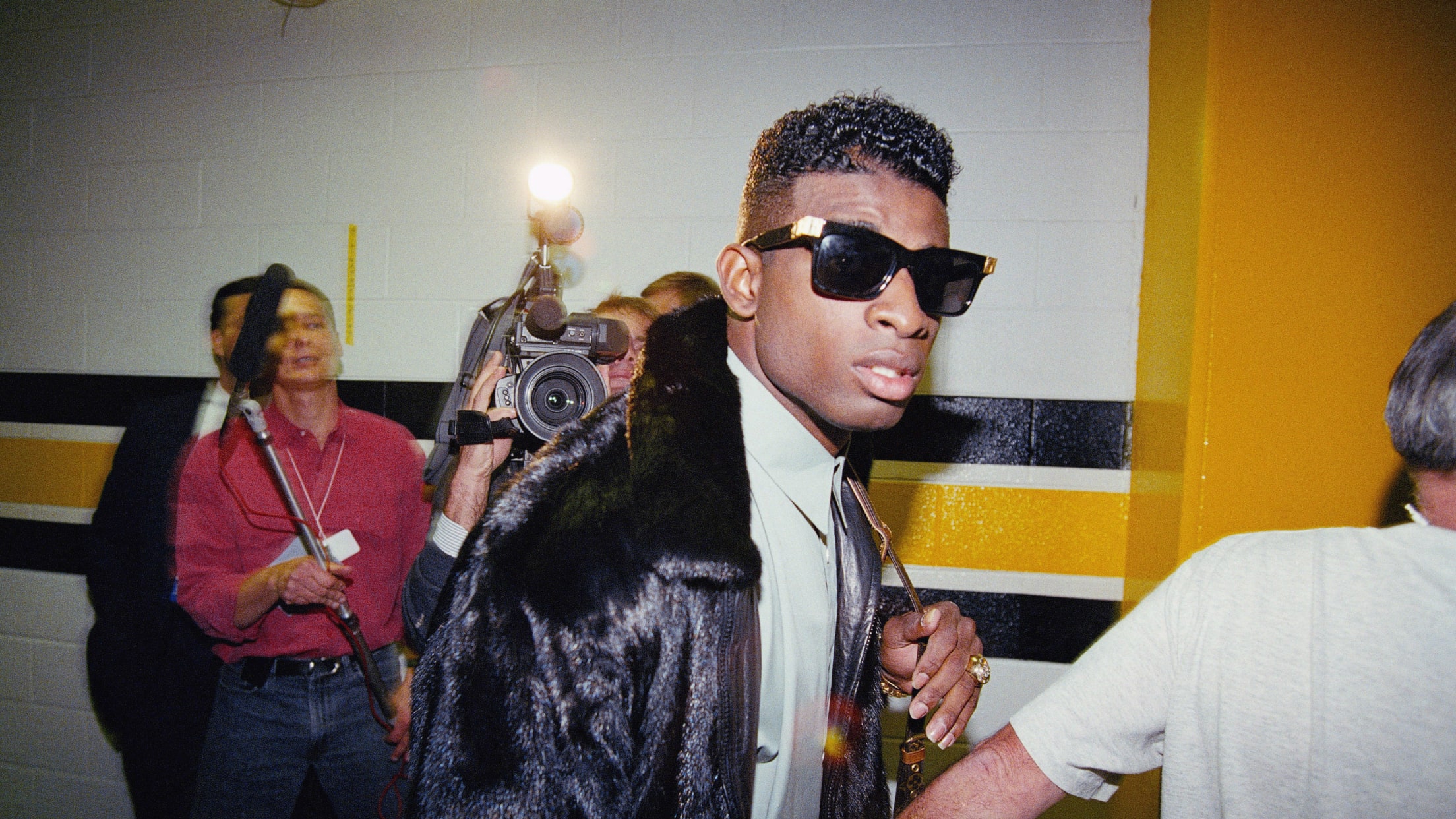
After arriving in Fort Lauderdale early in the morning following the Braves' 6-4 victory over the Pirates in Game 4 of the NLCS where he had appeared as a pinch-hitter and played the final innings in the outfield, Sanders caught a few hours of sleep. He was up in time to catch the Falcons' team bus to Joe Robbie Stadium for the game against the Dolphins. It was his first time with the team, having missed every practice in the run-up to the game.
"After the pregame warmup, he was there dressing," Falcons coach Jerry Glanville told me recently. "That was the first time we saw him all week."
But where his Braves coaches were upset, his Falcons teammates and Glanville were more understanding. They saw it as the once-in-a-lifetime opportunity from a once-in-a-lifetime player.
"The bottom line, I think everybody on the football team wanted him to go there and be successful," Glanville said. "So, I don't think anybody was upset or mad. I know the owners were not. He wanted to do it, and so we supported him all the way."
But Glanville still had a point he wanted to make. While in the locker room before they ran onto the field, Glanville made an announcement. Sanders would be on the field for the opening kickoff, but he would not crack the starting 11 on defense.
"I said, 'Deion, you're not starting. You come in here without practicing all week and fly in on a helicopter, I'm not starting you,'" Glanville remembered. "Everybody was shocked. In the locker room, you could hear a pin drop."
Glanville then whispered to Sanders, telling him to stand close to him on the sideline. So, after the Falcons lined up on defense for a single play without Deion at cornerback, Glanville made his move.
"I said, 'Your punishment is over, go,'" Glanville said. "I held him out for one play."
From there, Sanders played every defensive snap, returned two kicks and a punt, and caught his first pass of the season -- a nine-yard completion. Other than a defensive pass interference call, you could barely tell that he had arrived in the middle of the night after playing a baseball game the evening before.
"We played full-press, bump and run all day against a guy named Dan Marino. Didn't bother him at all," Glanville said.
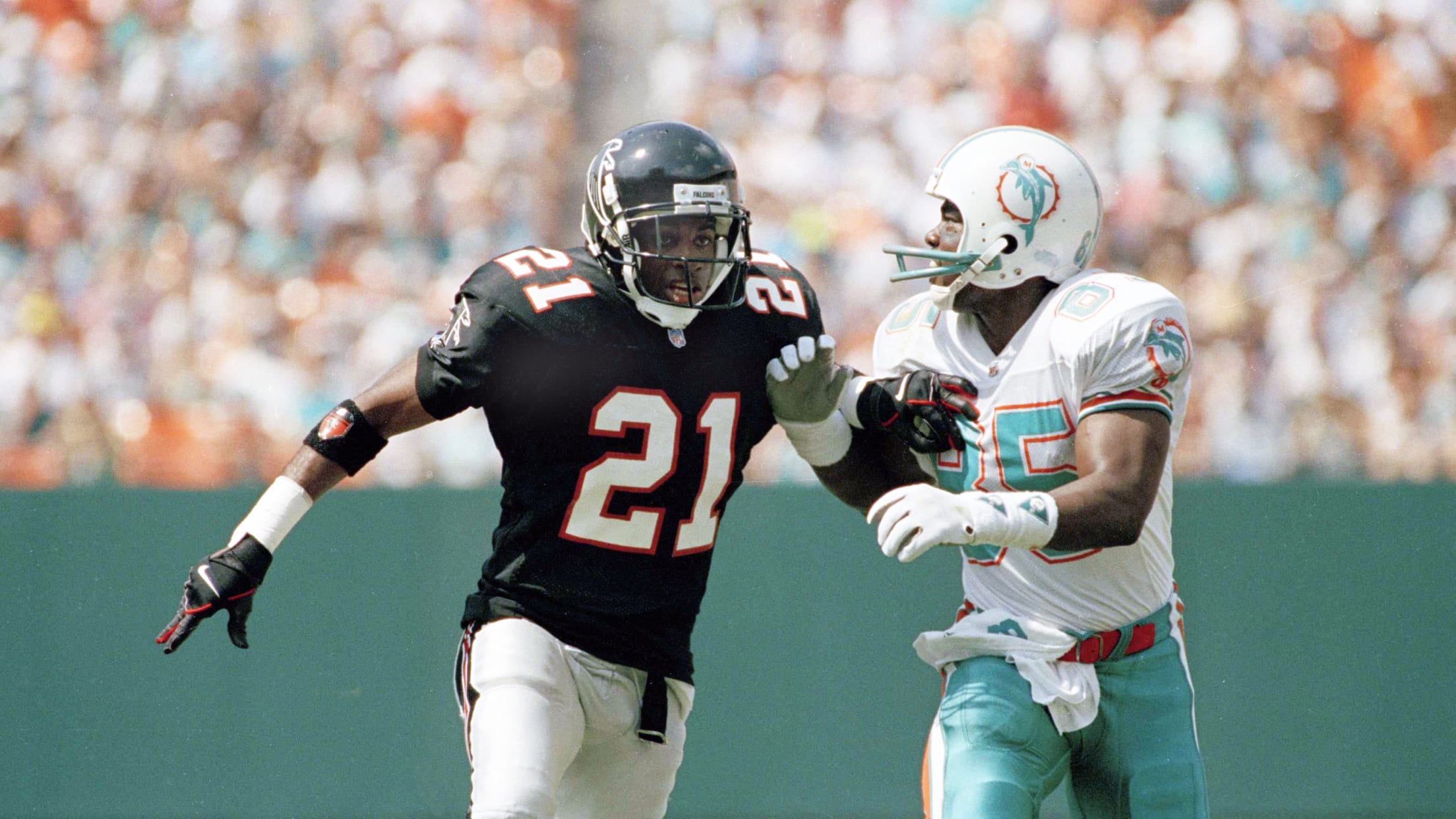
The game ended at 4:02 p.m., the Falcons losing, 21-17, but Sanders couldn't simply throw on some fresh clothes and leave. He was spent from the game and required an IV treatment in the trainer's room. He was the last to leave the locker room and didn't get into his limo to drive the thousand yards to the helicopter landing pad until 4:55 p.m.
This was when the clock started pressing up against Sanders' plan. The group argued with the helicopter pilot before he agreed to make two trips to take them to Opa-Locka Airport, a six-mile trip from the stadium. From there, they boarded a flight to Allegheny County Airport just outside of Pittsburgh. They landed there at 7:45 p.m. -- cutting it awfully close to first pitch, which was just under an hour away. From there, Sanders and the crew boarded another helicopter before hopping into a final limousine to get to Three Rivers Stadium.
All this was coordinated by Scearce, and it had to be communicated to the ground in the era before smartphones. That included "getting some kind of license so that we could fly over Pittsburgh to land near the stadium," Scearce said. That was hardly in the purview of her responsibilities before or since.
It was 8:28, just 16 minutes before first pitch, when Sanders walked into the stadium. In a postseason series where every roster spot is precious and every decision could mean the difference between a World Series appearance and a trip back home for the winter, you can understand the Braves' hesitancy to give Sanders their blessing on the day.
"If I knew he was going to do this before the playoffs started, I would not have put him on the 25-man roster," Schuerholz said at the time. "I'm concerned about the Atlanta Braves as a team, with a capital T.''
Earlier in the week, Cox was prophetic. "There's never been a problem like this," Cox said. "There's never been a Deion Sanders, either."
By 8:44, when Bob Walk threw a first-pitch strike to Otis Nixon, Deion was in uniform and on the bench with his Braves teammates. But he would not get into the game.
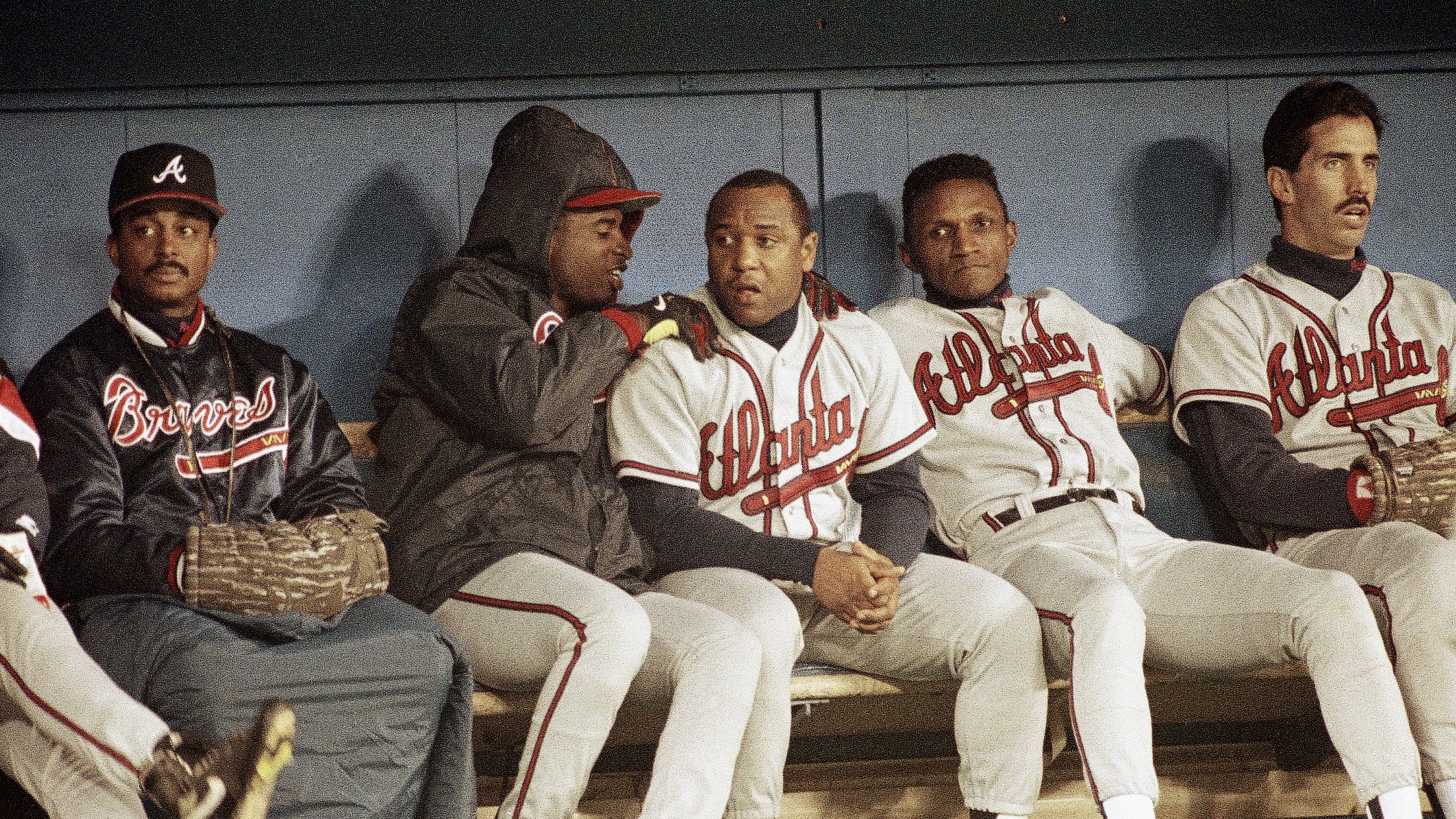
¡°Those 24 hours should have been joyous, phenomenal, exhilarating, exciting, tremendous, captivating," Sanders said in the 30 for 30 documentary on the day, "Deion's Double Play." "But it wasn¡¯t. And the one thing that bothers me: People say, 'Prime played two sports in one day.' I didn¡¯t. I suited up for two sports in one day.¡±
It was a disappointing end of the saga for Sanders. The Braves lost, 7-1, and, despite coming tantalizingly close, there has yet to be a player who has competed in two pro sports in a single day.
"It wasn't a sideshow," Braves pitcher John Smoltz said in the same documentary. "He was a weapon. It would have been in any team's best interest to try to make this happen that didn't sacrifice one or the other."
Sanders was on the Braves' roster for the World Series against the Blue Jays -- missing the Falcons' Oct. 18 game against the 49ers -- and he showed why Cox wanted him on the roster so badly. He went 8-for-15 with five stolen bases and he threw a runner out at home. Had the Braves won the World Series, he most likely would have been named MVP.
For all the criticism that ran in the media at the time, accusing Sanders of pulling this stunt off for selfish or promotional reasons, those who knew him insist that's not the case.
"He was a team guy," Glanville said. "The only time he became flamboyant is when somebody turned a TV camera on. Other than that, he was just a pleasure to coach."
Scearce agrees. Most of the time, if he was calling her up for something other than equipment, it was to help his teammates and friends: whether it was looping them into a commercial he was shooting or picking up Broadway tickets for them -- something he wasn't interested in -- when the team was in New York.
"He really was a team leader, in addition to just being a pivotal player," Scearce said. "He provided a lot of energy and a morale boost to his teammates for both the Falcons and the Braves. As his Nike sports management person, I can tell you that he would ask a lot of me and it was usually for his friends or his teammates -- he was always doing things with people around him. It wasn't about Deion always."
